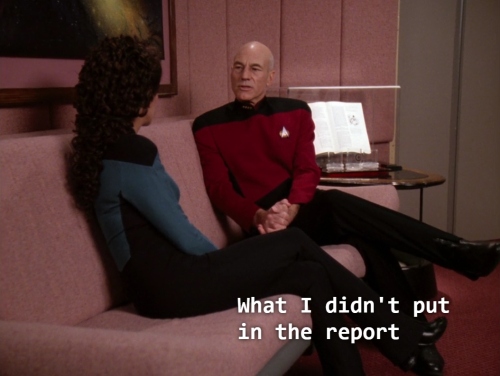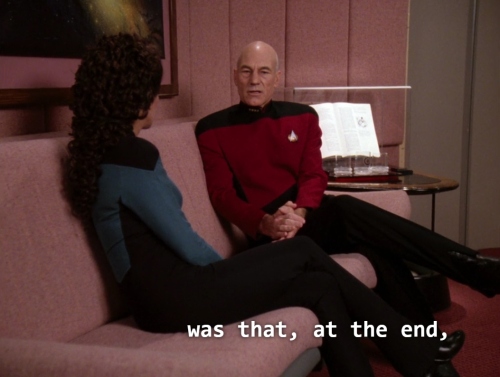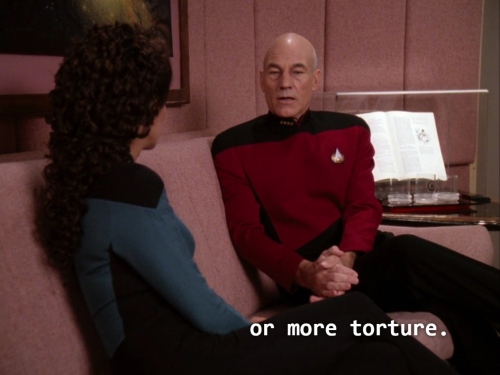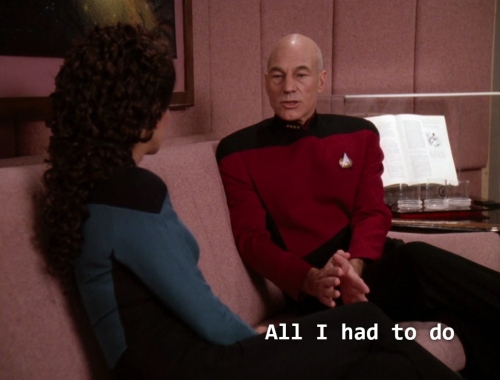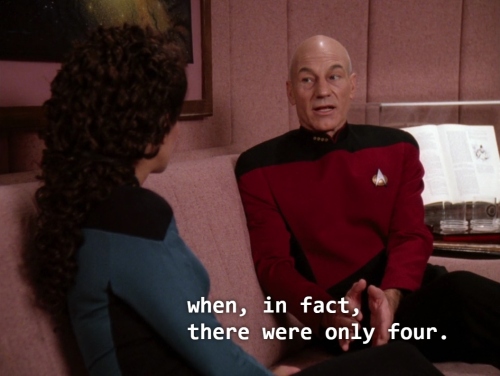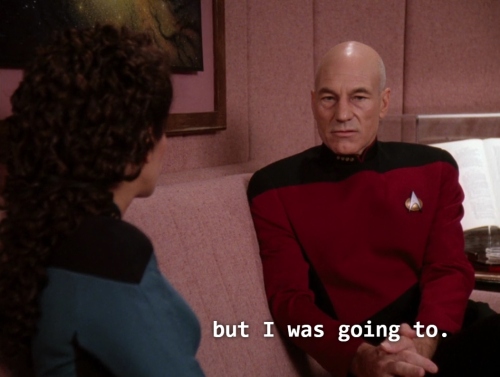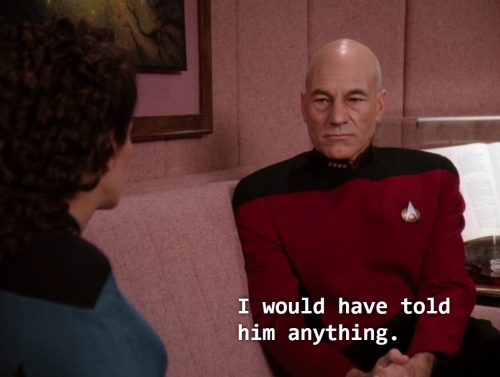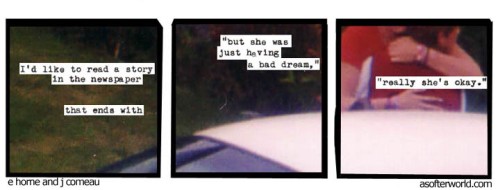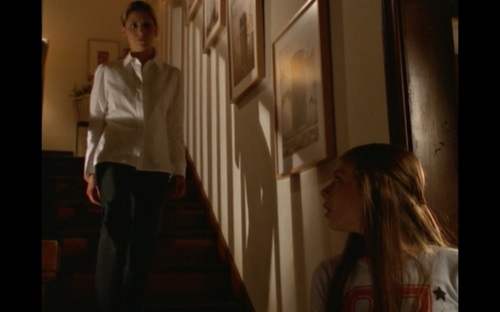-
Follow (RSS)
Get it free!
Archives
Around the Net
Best of Buckley
- Artificial Intelligence and Nietzsche
- Happiness is Not the Goal
- Hating Twilight Does Not Make You Cool
- How Precision Kills Communication
- How to Write Clearly
- Miswanting
- Reading Van Gogh
- Sixteen Simple Rules for Writers
- Staring at Rectangles
- The Joy of Hubris
- The One-Step Guide to Getting Published
- These Are a Few of My Favorite Things
- You Do Not Even Have to Believe in Yourself
Tags
Art Artificial Intelligence Ask an Overmind Ask Brian Anything Avatar Babyology Buffy Copyediting Fiction Forty-Minute Story Friday Links Frozen Great Bible Read Haiku 365 NSA domestic spying Philosophy Poems Postmortem Restore the Fourth Riddle RPG Maker Scientology Singularity The Crane Girl The Federalist Capers The Witching Hour Transcendence Yoda vs. Everybody
Tag Archives: Transcendence
Transcendence: The Princess
Each week, we’ll look at another example of what I call a “moment of transcendence” – a scene from a show, a passage from a book, or anything else, that I find soul-piercingly resonant: joyful, sad, awe-inspiring, terrifying, or whatever. These moments are highly subjective, so you may not feel the same way I do, but nevertheless I’ll try to convey why I find the fragment so powerful. I hope we can enjoy it together.
This year, I received from my sister-in-law – among other wonderful Christmas gifts – a copy of The Princess and the Goblin by George MacDonald. I finished it last night.
I’ve been wanting to read it for a while now. It came out in 1872, and MacDonald’s work is supposed to have been enormously important in the modern fantasy genre, influencing such luminaries as Lewis Carroll, J. R. R. Tolkien, Madeleine L’Engle, G. K. Chesterton, Walter de la Mare, and C. S. Lewis.
Honestly, I was pretty underwhelmed with the book itself. Maybe it was a big deal at the time, to an audience who had never seen anything like The Lord of the Rings, but by today’s standards it feels a little…boring. Nobody ever seems to be in much danger, aside from a few brief moments, since a certain benevolent caretaker solves most problems with her magic before they get too serious. Also, there’s a fair bit of moralizing and setting-a-good-example for children, which gets old fast. (The lack of such moralizing, by the way, is one of the reason Carroll’s Alice books were – and are – so popular.)
On the plus side, The Princess and the Goblin is astonishingly gender-equal by 1872 standards, and – in my opinion – better than average in that department even by today’s standards. So that’s pretty cool.
Despite being kind of dull, however, the story does have its moments. The one which struck me most was this brief exchange, in which the eight-year-old Princess Irene first meets her great-great-grandmother, whose supernaturally long life and somewhat youthful appearance are both due to enchantment.
“Is that what makes your hair so white?”
“No, my dear. It’s old age. I am very old.”
“I thought so. Are you fifty?”
“Yes – more than that.”
“Are you a hundred?”
“Yes – more than that. I am too old for you to guess. Come and see my chickens.”
It’s that last part: I am too old for you to guess. A simple, understated little sentence, but more effective in its own way than a dramatic speech about watching kingdoms rise and fall. Don’t worry about it, child – I am beyond what you can imagine. Now let’s go look at my animals.
I’m just starting to read The Arabian Nights now, a version edited by Muhsin Mahdi and translated by Husain Haddawy, which seems pretty good and faithful to the older versions of the stories. More thoughts as I think them.
Transcendence: Security
Each week, we’ll look at another example of what I call a “moment of transcendence” – a scene from a show, a passage from a book, or anything else, that I find soul-piercingly resonant: joyful, sad, awe-inspiring, terrifying, or whatever. These moments are highly subjective, so you may not feel the same way I do, but nevertheless I’ll try to convey why I find the fragment so powerful. I hope we can enjoy it together.
I don’t have too much time this morning (surprise, surprise!) so I won’t get into a lot of analysis. Fortunately, this one’s pretty self-explanatory.
Here’s another of my favorite Peanuts comics, this time from August 6, 1972. Click to enlarge.
When you’re a kid, you think you’ll turn into this totally confident fearless adult someday. Then you grow up and realize that all those confident adults are still half kids inside.
C’est la vie.
Transcendence: Siege of the North
Each week, we’ll look at another example of what I call a “moment of transcendence” – a scene from a show, a passage from a book, or anything else, that I find soul-piercingly resonant: joyful, sad, awe-inspiring, terrifying, or whatever. These moments are highly subjective, so you may not feel the same way I do, but nevertheless I’ll try to convey why I find the fragment so powerful. I hope we can enjoy it together.
Warning: Major spoilers for Avatar: The Last Airbender.
Avatar isn’t perfect, but its season finales are pretty damn close. Each of the show’s three seasons ends with that mix of breathless emotion and precise plotting that you only achieve when you’ve thought your story through carefully in advance.
Season 3’s finale, set in the Fire Nation, is grand and operatic. Season 2’s finale, in the Earth Kingdom, is intricate and dark.
And season 1’s finale, in the Water Tribe – Siege of the North – is a master class in pacing, escalating tension, and pitch-perfect payoff.
The plot’s a bit complicated and I won’t try to explain it all, but basically, the Fire Nation (bad guys) is invading the Northern Water Tribe (good guys) with a massive army. The waterbenders (sorcerers, essentially) are stronger when the moon is out, so the Fire Nation general has a plan to kill the Moon Spirit, effectively destroying the moon itself and throwing the entire planet out of balance.
Things are looking bad – it seems like he’s really going to do it –
And then he really does it.
The moon vanishes. The world goes dark. Everything on the screen turns black and white. The Fire Nation is rampaging through the streets. Even the general himself seems horrified by what he’s done. As one character succinctly puts it: “There’s no hope now. It’s over.”
And then Aang, the goofy little kid who would rather braid necklaces than fight anybody, who never wanted to be the Avatar, steps forward, eyes glowing with pure light, and says, in a voice like a chorus of angels:
NO. IT’S NOT OVER.
![]()
![]()
![]()
![]()
![]()
![]()
![]()
![]()
![]()
The precise mechanics of what Aang does are less important than the triumphant music, the gorgeous interplay of color and light and dark, the climax of a conflict that has been brewing for three episodes (and, to a lesser extent, the whole season), that finally reaches its breaking point.
This is what we in the editorial world refer to, professionally, as “wicked sweet.”
Avatar is a criminally underrated show, and – at just 61 episodes of 22 minutes each – the time commitment is minimal. Aang is cool. Spread the word.
Transcendence: A Bad Dream
Each week, we’ll look at another example of what I call a “moment of transcendence” – a scene from a show, a passage from a book, or anything else, that I find soul-piercingly resonant: joyful, sad, awe-inspiring, terrifying, or whatever. These moments are highly subjective, so you may not feel the same way I do, but nevertheless I’ll try to convey why I find the fragment so powerful. I hope we can enjoy it together.
A Softer World is an odd little webcomic. I used to read it all the time, and then stopped for some reason. I just found out today that they’re done making them, but the archives are still online.
It isn’t really a comic in the normal sense. Instead, they take a photo, split it into panels (usually three), and add some text. There aren’t characters, plot, or dialogue per se. It’s just something funny or sad or different. ASW is artsy and weird, in a good way.
This one is my favorite. It doesn’t have a date, but I’m estimating circa 2004.
Everyone – even people with safe and happy lives, like me – everyone gets so used to the ubiquity of pain and sadness that it simply becomes standard, part of the world, part of the mental model. It’s bad, but you expect it. You could call this jaded or cynical, but if so, it’s the baseline cynicism you need to get by as an adult, or as a child older than three.
You know how your windows get dirty, and you don’t even realize how dirty they are till someone wipes a circle on one of them? Suddenly you realize what clean glass looks like, and then for the first time you understand how dirty the rest of it is, has always been, which you never knew till now, even though you’d been looking at it all along.
That’s what this comic is for me. It’s not saying we should be naive or ignore pain or anything like that. It’s just saying “Look, this is where we are. This is how far we are from what we hoped it would be.” Not depressing (at least to me). Just true.
In Slaughterhouse-Five, Kurt Vonnegut imagines a soldier’s epitaph as “Everything was beautiful and nothing hurt.”
In my favorite episode of Buffy, “After Life,” our recently resurrected heroine describes what death was like:
I knew that everyone I cared about was all right. I knew it. Time didn’t mean anything, nothing had form. But I was still me, you know? And I was warm. And I was loved. And I was finished. Complete. […] I think I was in heaven. […] Everything here is hard, and bright, and violent.
The Tower of Babel is supposed to be a cautionary tale. But that heaven, I think, is worth building a tower to.
Transcendence: After Life
Each week, we’ll look at another example of what I call a “moment of transcendence” – a scene from a show, a passage from a book, or anything else, that I find soul-piercingly resonant: joyful, sad, awe-inspiring, terrifying, or whatever. These moments are highly subjective, so you may not feel the same way I do, but nevertheless I’ll try to convey why I find the fragment so powerful. I hope we can enjoy it together.
Warning: Major spoilers for Buffy the Vampire Slayer.
My favorite episode of Buffy is an odd one, an often-overlooked story without much action: “After Life,” season 6, episode 3.
Buffy died at the end of season 5, and Willow has just resurrected her, but not everything’s gone according to plan. Buffy is more hurt, more damaged, than anyone expected. But she’s alive. It’s really her.
My favorite scene in my favorite episode is when Spike sees her for the first time post-resurrection. Spike, you see, loves Buffy more than anything on earth, and he’s lost her, he’s resigned himself to having his heart ripped out. Same old story. But he walks into the house, unsuspecting, distracted, worried about something else entirely – and there, at the top of the stairs, there she is.
For the next ten seconds or so, he doesn’t say a word. He just – looks at her.
The why and the how and the what next all come later. In this moment, he’s just drinking in the miracle.
Anyone else read Roald Dahl’s Matilda as a kid? (Or as an adult, for that matter?) Reminds me of a scene, toward the end, when Matilda tells Miss Honey she has magic powers – telekinesis. Miss Honey doesn’t believe her, of course, but being a nice person, she humors Matilda, lets her demonstrate. And then Matilda actually does it. Dahl describes the woman’s reaction this way:
Miss Honey’s mouth dropped open and her eyes stretched so wide you could see the whites all round. She didn’t say a word. She couldn’t. . . . [She was] gazing at the child in absolute wonderment, as though she were The Creation, The Beginning Of The World, The First Morning.
It’s very common in books, in movies, on TV, to see someone’s heart ripped out. But every now and then – much more rarely – the heart comes back again.
Transcendence: Anime Musical Perfection
Each week, we’ll look at another example of what I call a “moment of transcendence” – a scene from a show, a passage from a book, or anything else, that I find soul-piercingly resonant: joyful, sad, awe-inspiring, terrifying, or whatever. These moments are highly subjective, so you may not feel the same way I do, but nevertheless I’ll try to convey why I find the fragment so powerful. I hope we can enjoy it together.
I admit it: I’m a sucker for perfection.
Most moments of transcendence – for me, anyway – are about powerful emotion or profound truth, or both. But there’s another side of me, call it the twelve-year-old boy in me, that’s more in love with technical perfection, something complex done precisely and beautifully right. It’s the side of me that loves Chris Bliss’s crazy juggling skills and the Millennium Falcon flying inside the Death Star. Something about it just feels exactly perfect.
There’s a particular scene in the anime Neon Genesis Evangelion that gives me that complex, perfect, “exactly right” feeling. I’ve loved it for a long time, and I happened to watch it again with Ben on Saturday. Basically, it’s two kids in giant mech suits fighting an equally giant monster, synced to music. Don’t worry too much about the details or the logic. Just watch and listen.
(Link here in case you can’t see the embedded video.)
I have a feeling that many people will watch that scene and see no appeal at all. Like Monty Python, it either scratches your itch or it doesn’t, and not everyone has that particular itch. But for those who do, it’s perfection.
By the way, I also love the technique of removing voices and sound effects and playing only the “background” music. Gandalf’s death scene in Fellowship does the same thing, and a lot of my other favorite scenes do, too. I guess I love it because it implies transcendence in an audio sense: for a brief moment, we’ve moved beyond the need for voices and into the purified realm of music alone. Something like that, anyway.
Hell, or maybe I just like giant robots. I wouldn’t rule that out.
Transcendence: Never Gonna Change
Each week, we’ll look at another example of what I call a “moment of transcendence” – a scene from a show, a passage from a book, or anything else, that I find soul-piercingly resonant: joyful, sad, awe-inspiring, terrifying, or whatever. These moments are highly subjective, so you may not feel the same way I do, but nevertheless I’ll try to convey why I find the fragment so powerful. I hope we can enjoy it together.
Very often, you’ll fall in love with a song or a story when you’re a kid, but you won’t fully appreciate it – you won’t really get it – till you’re an adult. I think that just about any art worth its salt will grow along with you.
That’s how it was with Collin Raye’s 1995 song “I Think About You,” which came out when I was ten.
It’s a country song that is feminist (yes, they exist!) – but, more broadly, it’s about fighting for change in a world that often doesn’t care. It’s sung from the perspective of a father whose outlook on world problems has shifted now that he has an eight-year-old daughter. I do not have a daughter myself – or a son – as far as I know, but as I get older, I’ve begun seeing social problems more in the way he describes.
There are a couple lines in particular:
(Click here if you can’t see the audio player.)
Every time I hear people say it’s never gonna change
I think about you
Like it’s some kind of joke, some kind of game
Girl, I think about you
It’s an indictment of cynicism.
Now, I’m cynical about some things, I admit. But I think there are two kinds of cynicism. There’s bitterness born of frustration with a broken system: the anger that comes from fighting and losing. And then there’s a darker, more complacent cynicism, an attitude of sitting back on your hands and saying, “Well, that’s just how life is.” It’s that second kind, I think, that he’s talking about here.
From a certain angle, bitter complacency can sound like wisdom. But it’s poison – and not just for us, but for future generations too. For me, these lines are an elegant reminder of what’s at stake.
So, um. That was kind of depressing for a Monday morning. Here, have a comic about dog psychology.
Transcendence: Another World
Each week, we’ll look at another example of what I call a “moment of transcendence” – a scene from a show, a passage from a book, or anything else, that I find soul-piercingly resonant: joyful, sad, awe-inspiring, terrifying, or whatever. These moments are highly subjective, so you may not feel the same way I do, but nevertheless I’ll try to convey why I find the fragment so powerful. I hope we can enjoy it together.
On my computer I have a file called “Quotes.txt”. I’ve collected quotes over the years from all sources – novels, letters, diaries, TV shows, poems, Internet chat logs, even stuff that people have told me. I’ve probably got a couple hundred by now.
Among my favorites:
There is another world, but it is in this one.
I have very little information about this quote. It’s from Paul Éluard. I didn’t know anything about Éluard until this morning, when I looked him up for this blog post. Evidently he was a French surrealist poet, a friend of Picasso.
The quote appears to be genuine (Wikiquote has a source for it, and the original French) but I have no idea of the context. So I don’t know what it meant to Éluard.
I can tell you what it means to me.
To me, as an agnostic humanist, it says that magic is real, but it’s not opposed to the laws of physics.
When New Horizons crosses two million kilometers in under ten years and tells us a story of the most distant land we’ve ever visited, that’s magic – woven by a team of sorcerers who spent years in sorcery school, where they learned that some magic is based on math and articulated by computers.
When a Zen Buddhist meditates for years and attains enlightenment, it’s not because the spirit of some bodhisattva reached out to impart spiritual wisdom and knowledge (at least not in any literal sense). It’s because the practitioner has, through endless hours of disciplined focus, rewired their own brain to allow for a new perspective on life.
When I say that I love Betsy more than anyone on Earth, and she loves me, it does not diminish that bond to realize that it evolved as a survival tactic, a way of strengthening groups of animals. Love is what it is, and its mechanism does not tarnish its message.
The sacred is an emergent property of the profane.
See? A moment of transcendence – about transcendence. Isn’t that fun?
Transcendence: Beethoven’s Seventh
Each week, we’ll look at another example of what I call a “moment of transcendence” – a scene from a show, a passage from a book, or anything else, that I find soul-piercingly resonant: joyful, sad, awe-inspiring, terrifying, or whatever. These moments are highly subjective, so you may not feel the same way I do, but nevertheless I’ll try to convey why I find the fragment so powerful. I hope we can enjoy it together.
“I don’t know anything about art, but I know what I like.” Swap out “art” for “music” and this describes me perfectly.
I like Beethoven. Most of his work goes way over my head, but I get feelings when I listen to it, and sometimes – even more shocking – ideas!
With Beethoven’s Symphony No. 7, there’s this part about 21 minutes in. I’ll play it for you. This 25-second clip is from Wiener Philharmoniker, directed by Leonard Bernstein.
I listen to this, and it feels like a vast empire falling apart, pillars crumbling, brave men and women making desperate stands and being overwhelmed. But more than that, it feels like destruction that must happen, even if no one person wants it to: not just bad events, but the blind and hidden force of which those events are but a symptom. I think of what W. B. Yeats must have meant when he wrote:
Turning and turning in the widening gyreThe falcon cannot hear the falconer;Things fall apart; the centre cannot hold…
My last novel, The Counterfeit Emperor, was in large part an attempt to capture that essence. Not sure it worked, but it gave me something to shoot for.
Schroeder would be so proud.

